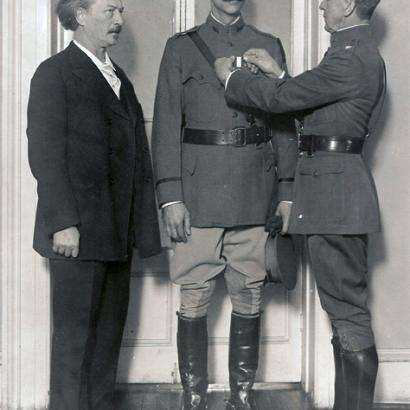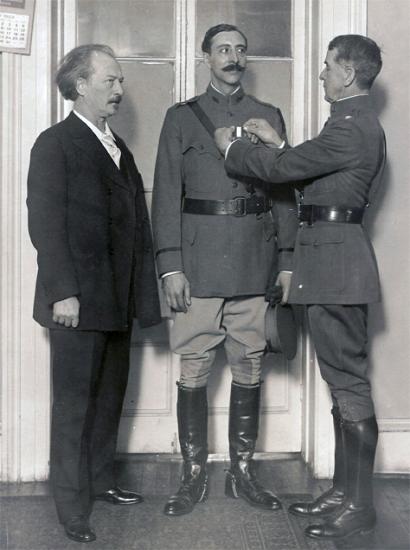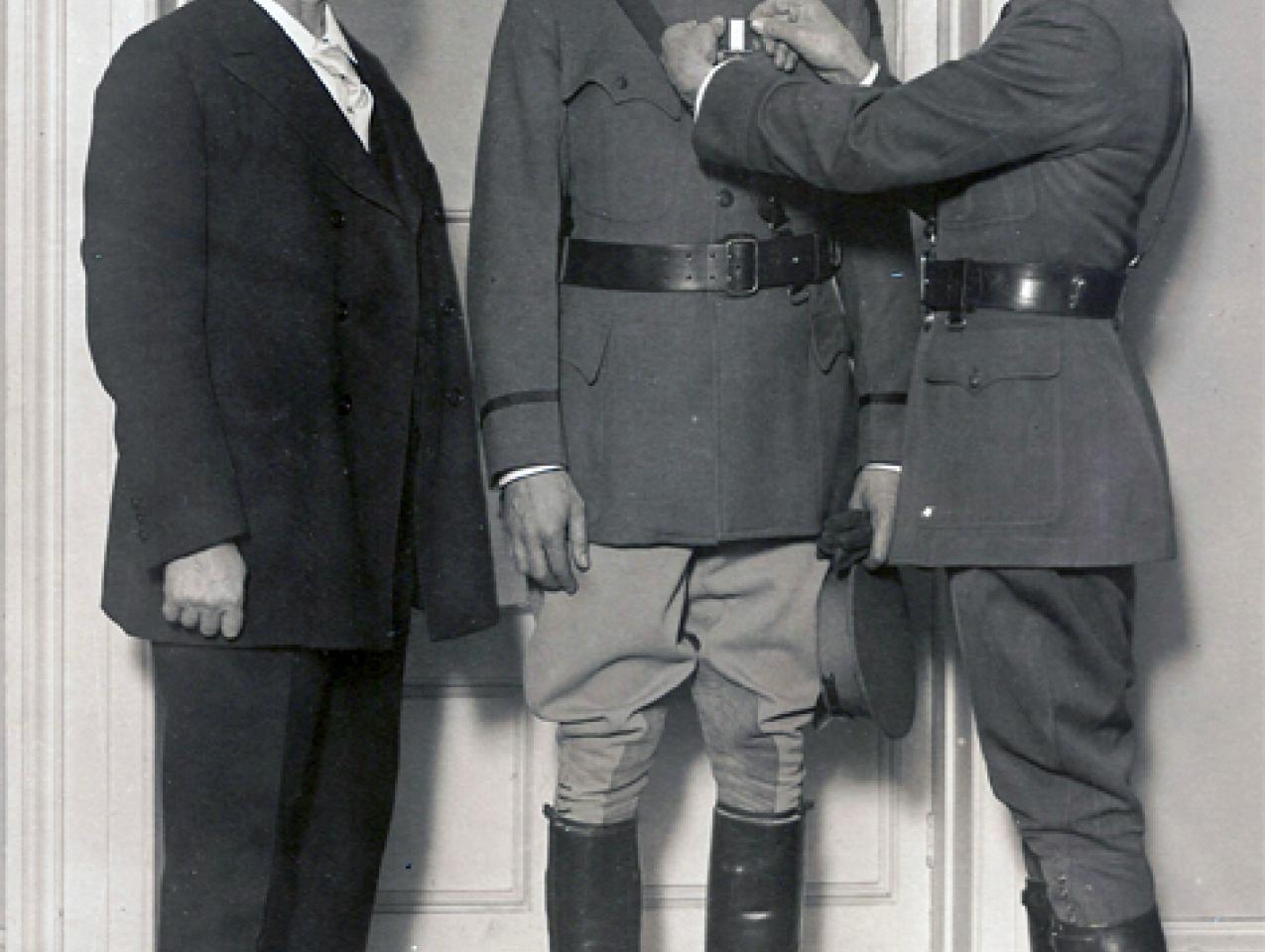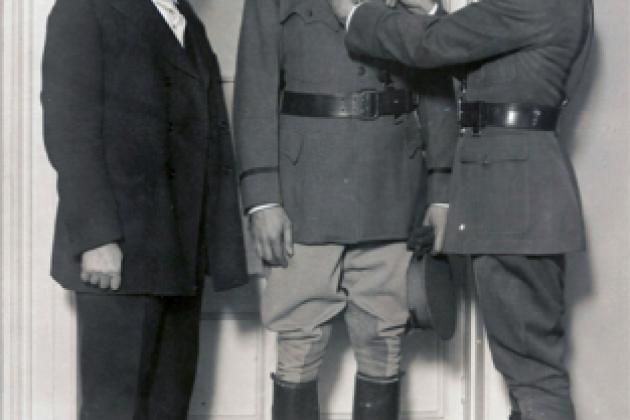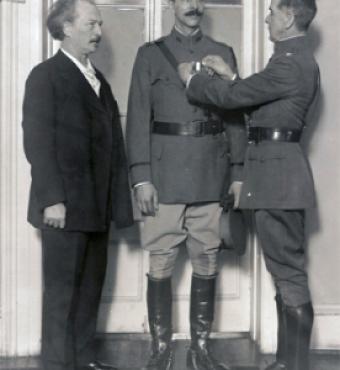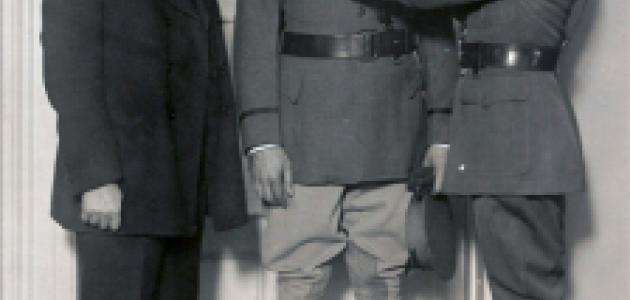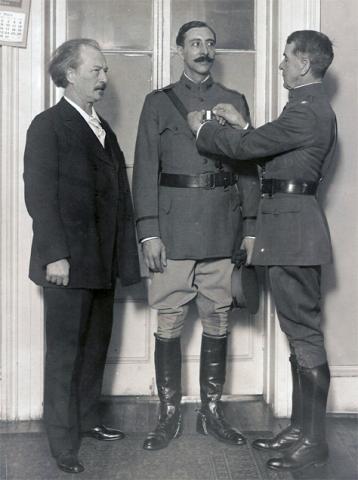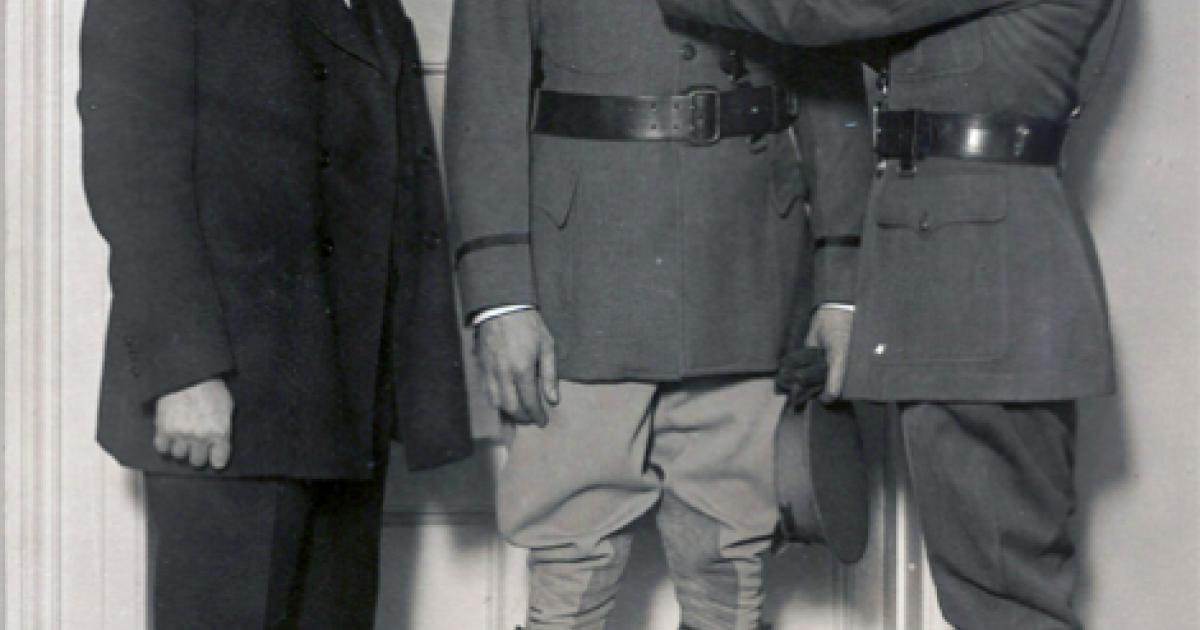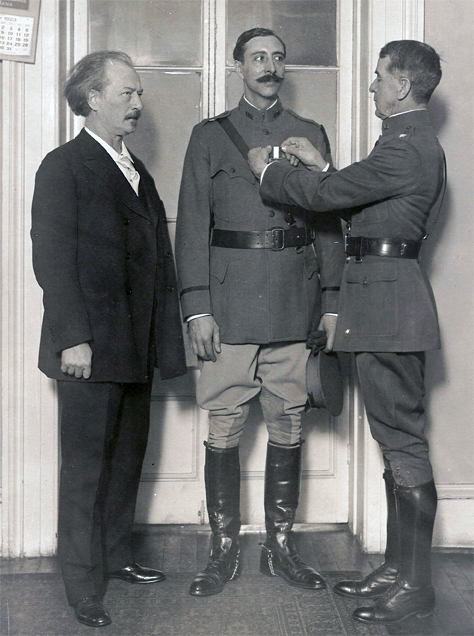
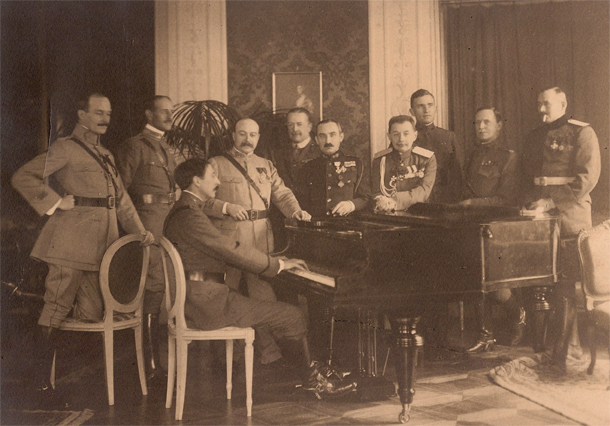
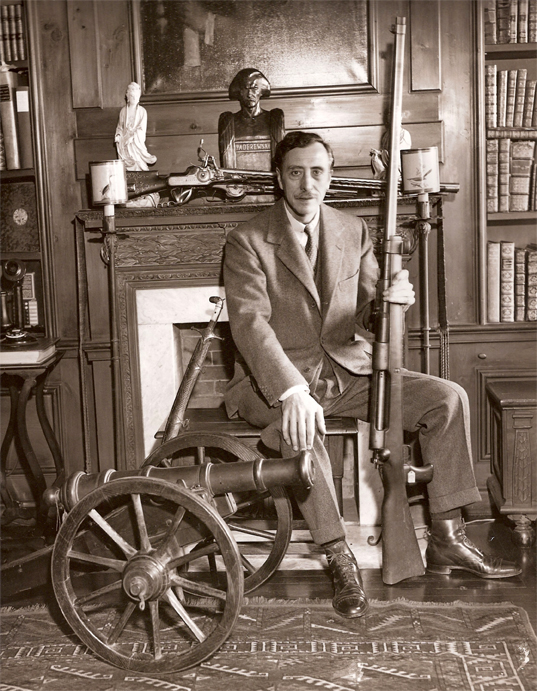
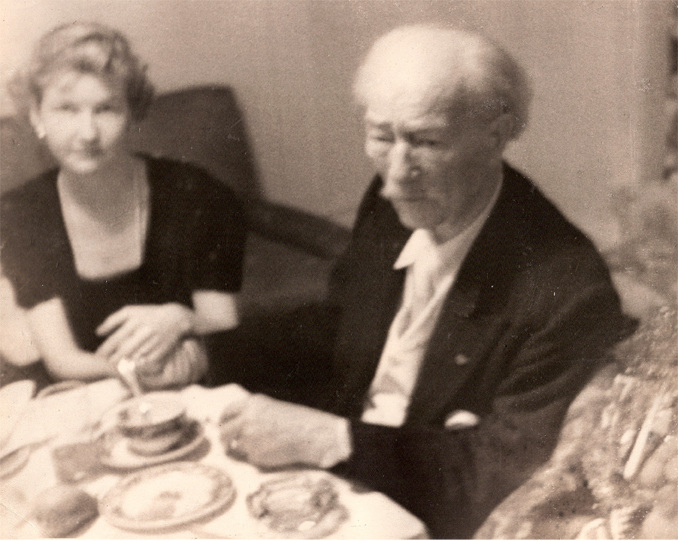
Known affectionately by his youngest fans as “Uncle Ernest,” Ernest Schelling was an American pianist and composer, the founder and for sixteen years the conductor of the New York Philharmonic-Symphony Young People’s concerts until his untimely death in 1939. His musical papers, which are held by the University of Maryland’s International Piano Archives, provide detailed documentation of the course of his artistic career, but relatively little has been known or available about Ernest Schelling’s life outside music. The new Hoover collection sheds light on an important segment of his biography: his distinguished career as an intelligence officer and diplomat during and immediately after World War I, and his lifetime friendship with Ignace Jan Paderewski, the charismatic Polish piano virtuoso and statesman.
Born in New Jersey in 1876 to a Swiss father and an English mother, Ernest was a child prodigy. His father, Dr. Felix Schelling, a physician and a musician, was his first teacher. Ernest made his piano debut at the age of four-and-a-half at the Academy of Music in Philadelphia; at the age of seven, he entered the Paris Conservatory, the youngest pupil ever accepted. In 1896, Paderewski accepted the young American as his student. He visited Paderewski during the summer months in Zakopane, high in the Tatra Mountains of southern Poland, as well as in the Paderewskis’ palatial villa of Riond-Bosson in Morges, above Lake Geneva. Schelling’s 1900 London and 1905 New York debuts brought him musical acclaim and fame, in no small measure a tribute to Paderewski. The mentorship soon turned into a friendship that lasted a lifetime. Schelling had a summer home on Lake Geneva, only a few miles from the Paderewskis’, and they spent much time together. In fact, Schelling and his wife were the organizers of the great pageant in honor of Paderewski on his name day of July 31, 1914, the eve of the outbreak of World War I, an event movingly described in Paderewski’s own memoirs.
The tragic course of the war on the continent he considered his second homeland and his close association with Paderewski, who soon became the leader of humanitarian relief and political information work on behalf of Poland in Allied Europe and in the United States, were important factors in Ernest Schelling’s decision to become an active participant. The event that likely influenced his decision to enlist was the sinking of the Sussex in the English Channel by a German U-boat. Among the eighty passengers who died were friends of both Schelling and Paderewski, the renowned Spanish pianist and composer Enrique Granados and his wife, Amparo, orphaning six children. In the spring of 1917, Schelling took a leave from his musical career and joined the US Army. With his intimate knowledge of European cultures and fluency in several languages, he was sent to the Army War College and, after completing a crash course, was given a captain's commission and assigned to the military intelligence branch of the General Staff. From September 1917 until October 1919, Schelling served as assistant military attaché at the American Legation in Bern, Switzerland. Much of what Schelling did involved translation and analysis, but he also provided some services for the French government, earning him the French Legion of Honor. Schelling advanced to the rank of major while still in Europe, and was awarded the Distinguished Service Medal after the war. Immediately after the November 1918 armistice, he was sent by the Army into German-occupied area to monitor troop withdrawal and by the American Red Cross to assist with the release and repatriation of American prisoners and civilians. He then was sent into Poland to liaison with his old friend, Ignace Paderewski, now the prime minister of the newly reestablished Polish state. Schelling’s work in Poland earned him one of Poland's highest decorations, the Order of Polonia Restituta; his medals and decorations are a part of the collection received by the Hoover Archives, as are his service documents and US Army uniform. Many World War I photographs and publications in French, German, and English, as well as photographs of Paderewski and his concert programs are also included.
The Schelling collection is the gift of the family of Schelling's second wife, Helen “Peggy” Marshall, later Mrs. Janos Scholz. Helen cultivated the friendship with Paderewski, until the pianist's death in 1941, and later served on the executive committee of the Paderewski Testimonial Fund, which provided humanitarian relief to Polish refugees and soldiers during and immediately after World War II. An increment to Hoover's Paderewski Testimonial Fund Records, which accompanied the Schelling papers and memorabilia, includes albums of clippings and photographs from the final months of Paderewski’s life, and significantly complements the archives' extensive earlier holdings of Paderewski papers.
Maciej Siekierski, Senior Curator siekierski@stanford.edu




